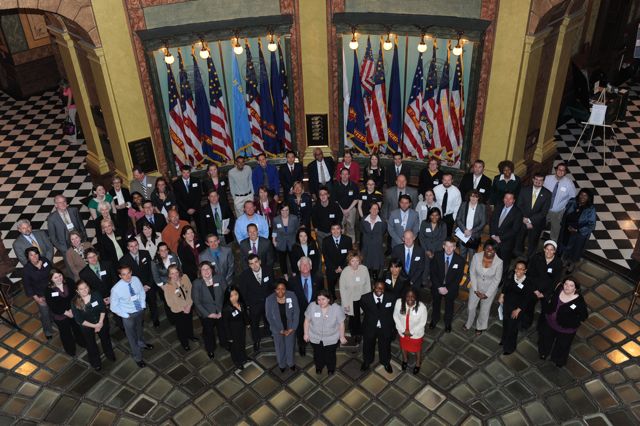The BRC announces the recipients of its 2010 Spring Travel Grants:
- Adam Abraham, (graduate student in ME-EM) will receive $500 toward a podium presentation at the American Society of Mechanical Engineers–Summer Bioengineering Conference, to be held in June in Naples, Fla.
- Rachel Bradford (graduate student in Biomedical Engineering) will receive $500 toward a poster presentation at the 31st American Society for Bone and Mineral Research held in September in Denver, Colo.
- Shurong Fang (graduate student in Mathematical Sciences) will receive $500 toward a podium presentation at the 2010 Joint Statistical Meetings to be held in August in Vancouver, British Columbia.
- Kasra Momeni (graduate student in ME-EM) received $500 toward a poster presentation at the 2010 MRD Spring Meeting Symposium held in April in San Francisco, Calif.
- Duane Morrow (graduate student in ME-EM) will receive $500 toward a podium presentation at the American Society of Mechanical Engineers–Summer Bioengineering Conference to be held in June in Naples, Fla.
- Saikat Mukhopadhyay (graduate student in Physics) received $500 toward a podium presentation at the American Physical Society 2010 Meeting held in March in Portland, Ore.
- Christopher Schwartz (graduate student in Biological Sciences) received $500 toward a poster presentation at the Experimental Biology 2010 Conference held in April in Anaheim, Calif.
- Sarah Stream (graduate student in Biological Sciences) received $500 toward a poster presentation at the Experimental Biology 2010 Conference held in April in Anaheim, Cali.
- Echoe Bouta (undergraduate in Biomedical Engineering) will receive $500 toward a poster presentation at the Molecular Mechanisms in Lymphatic Function and Disease Conference to be held in June in Lucca, Italy.
- Connor McCarthy (undergraduate in Biomedical Engineering) will receive $500 toward a poster presentation at the Molecular Mechanisms in Lymphatic Function and Disease Conference to be held in June in Lucca, Italy.
- John Moyer (undergraduate in ME-EM) will receive $500 toward a poster presentation at the American Society of Mechanical Engineers–Summer Bioengineering Conference to be held in June in Naples, Fla.
- Eli Vlaisavljevich (undergraduate in Biomedical Engineering) received $500 toward a poster presentation at the Orthopaedic Research Society Meeting held in March in New Orleans, La.

